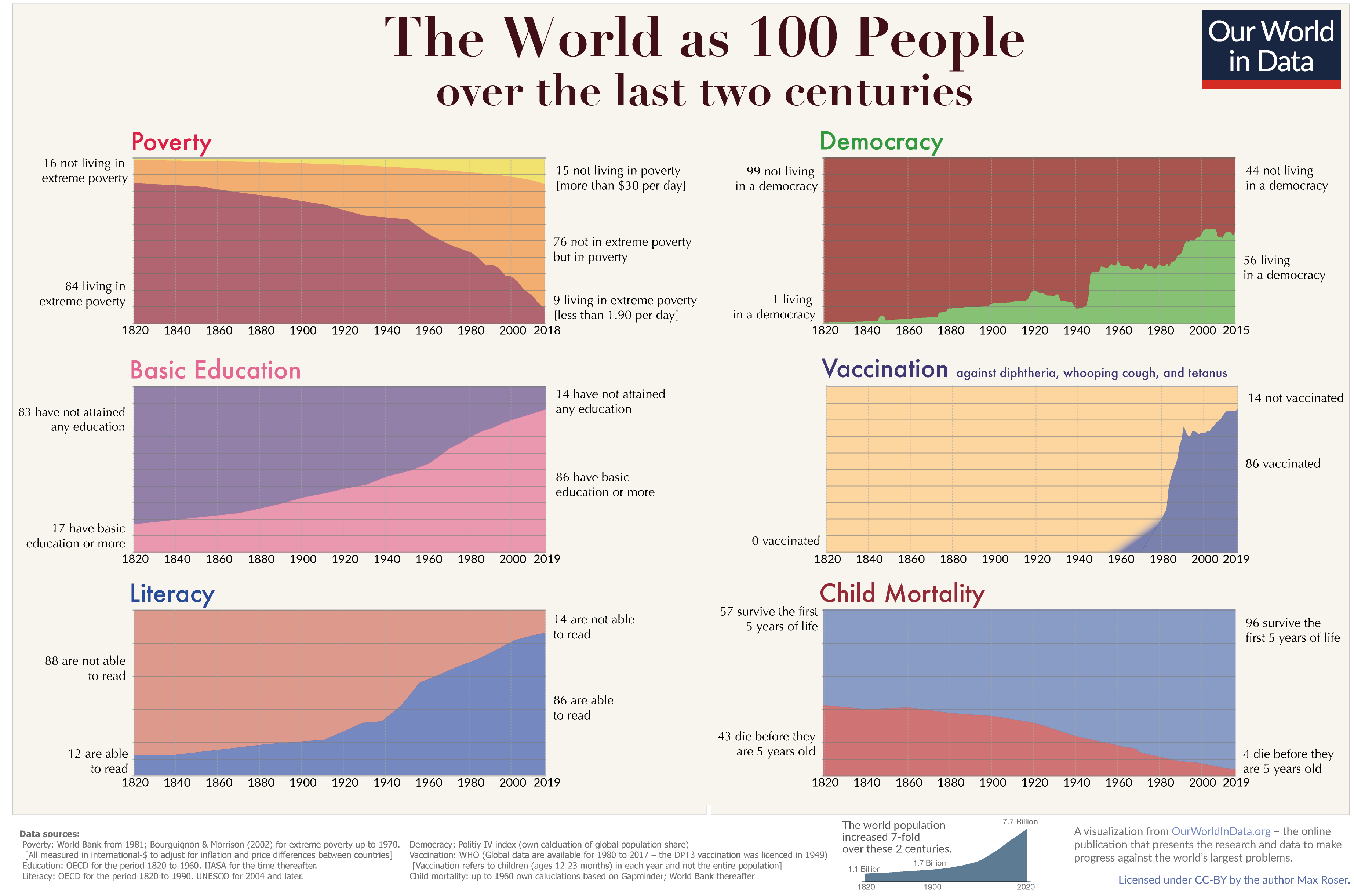This has strong dad vibes
Well Marx is basically father Christmas lol
The alternative forms of government have done it much faster. I wonder if we will get the balance right eventually. I thought Nordic states had a good thing going but seeing Sweden’s right shift lately I’d guess not.
deleted by creator
So a co-op
That is the conservative-authoritarian agenda.
Planned economies are grossly inefficent, a handful of planners creating chains of production results on an economy that works only on paper.
Marxism works as a critique of lassiez-faire capitalism, but as a standalone system always results in the creation od totalitarian regimes. A well regulated market economy, with publicly funded infrastructure and services has the best of both worlds.
Planned economies are actually very efficient, look inside of Walmart and Amazon, and what you’ll see is a ton of planning, this planning isn’t based on ‘a handful of planners’, but instead based on a fuckton of data, usually collected and analysed via SAP business planning software. These companies are able to respond to trends and price goods in a way that their profits remain high, and both of these companies at least have some of their supply chains under full control for themselves.
I’m pretty sure we can create this kind of planning and enact control over it for different goals apart from profit, and there are countries where this is already being tried like here
Walmart is not the whole economy, who told you that? They are merely one of the actors
Even if the data collection software was perfectly informed in regards to goods and services (very doubtful) it is still a bad idea to put the reins of economy into the hands of a few people. Consolidation of state power and the power of capital into a single entity has resulted in totalitarian regimes. Even the examples listed are basically exemplars of everything bad about modern corporations. Putting politicians in charge of such a system won’t automatically make it a force for good.
I’ve seen the opposite in places like the UK where privatization of public utilities has lead to very high prices, poor customer service, and under investment across the board.
Marxism works as a critique of lassiez-faire capitalism, but as a standalone system always results in the creation od totalitarian regimes.
Marx never devised any kind of “system” and there has never been a Marxist revolution (if you mean, of the kind Marx predicted would occur). Marx thought revolution would result from the concentration of labour in factories in heavily industrialised countries but so-called Marxist revolutions have only happened in agrarian economies so far.
It turns out that fascism (which is power protecting itself) is the primary beneficiary of crises of capitalism because they happen when labour is at its weakest.
I dunno man, my quality of life is like 10x better than my grandparents’ and 1000x better than maybe 8 generations ago, and I’d argue that’s mostly attributable to liberalised free markets.
@mikeyBoy14 your grandparents generation could buy a house and send their kids to college on a single blue collar income.
Correct, until unregulated capitalism stopped acknowledging the human and saw people only as assets to be squeezed for profit, like cows to be milked until they run dry then slaughtered. Wages have largely not kept up with inflation while at the same time corporations turned necessities, like housing and healthcare, into profit centers. They observed the inelastic demand and lack of government oversight and are continuously raising prices on those necessities to maximize profits, knowing that people have no choice but to pay it or die. Capitalism without regulation just results in exploitation of the working class by the rich and greedy.
My grandfather had to buy dollars from a arab student(which was illegal), ga to the capital, find a foreigner who will agree to go into the special shop(which was only for party members and foreiners to enter) to by a JVC cassette player.
Yes, progress!
My grandparents worked 16+ hour days toiling away on a farm doing hard labour for like 60 years. They ate meat and potatoes for nearly every meal because grocery chains weren’t a thing for them (and they didn’t get a fridge until the 60s anyway). A bunch of their family members died of the Spanish Flu and other illnesses that we’ve since cured. That includes both my grandma’s parents when she was maybe 10. The highest-tech thing they owned until they were in probably their 50s was a 13-inch black and white TV that got like 2 channels with its bunny ears.
If you’re saying my biggest issue is that the house I bought cost double or triple than they would have paid in inflation-adjusted terms, I’d say I came out ahead.
All of these arguments are missing the point. They’re attempts at strawman arguments, though I don’t believe it was out of malice. Technologist progress is a function mostly of population and time. Both the US and USDR made significant technological progress, so economic system is a less important (still important though!) factor.
The argument is that the modern economic system compared to our grandparents’ generation is worse. We have less buying power. We have less publicly funded welfare to act as a safety net. Workers have less bargaining power than times past. Large corporations are taking advantage of consumers and workers at huge rates.
We could have had all of the technological progress we’ve made PLUS our grandparents’ economic situation if our parents didn’t fuck everything. That’s the argument.
I just don’t think that’s supported by the data though. On virtually every measure, living conditions have improved across the globe over the last century. You can pick out specific metrics where things are worse in specific countries (housing is the most obvious example where affordability has declined), but taken as a whole I just don’t see how you can draw any other conclusion.

I don’t think you read what I wrote.
I’m arguing that living conditions have improved due to technology, not economy. Our generation’s buying power is less than that of our grandparents. I’ll pull some data for this tonight after work. It’s true in several industrialized countries
my quality of life is like 10x better than my grandparents’
yeah, fuck all those workers, many children, slaving away for pennies, often dying, in mines and factories and dumpsters to provide me with that life. Not to mention the planet itself that we all live on that is literally being destroyed for the benefit of a handful of people.
I’d argue that’s mostly attributable to liberalised free markets.
because you’re comfortable enough to ignore reality as long as that keeps that comfy-comfy status quo of yours in place.
Congratulations, you are being part of the problem.
Do you think poor wages around the globe is a recent phenomenon? In any event, something like a half a billion people have been lifted out of poverty in China since the 70’s when it opened its markets up. There were sure as hell some losers from that process too, but I don’t think the progress on that front is something to overlook.
Saying Marx predicted everything is not at odds with mostly free market economies.
I think most people will say that free markets do provide economic opportunity, generally. The problem is when those free markets are completely unregulated, where those with wealth can create fascist plutocracies, which is the trend we’re seeing now. This is what Marx predicted.
We have two options: 1) reinstate proper regulations and ensure capitalists keep their hands out of government or 2) come up with a better system. To my knowledge, 2 hasn’t happened yet, and I think most people would be quite happy with 1.
Here’s a question in response: would China have seen such a huge reduction in povery if it didn’t offer cheap labour in the first place?
The main draw for foreign investment, capital inflow and trade, I would argue, was: (a) heavy investment in its stock of “hard” capital assets (i.e., great infrastructure); plus (b) an army of people willing to work for wages far lower than the countries making those investments (but generally higher than most of those people were making in agrarian sector).
This is arguably one of the most important (and complex) things for the world to understand well. There are billions more people around the world who haven’t been able to escape poverty whose futures really depend on getting these kinds of policies right.
So how does that relate to the original point…? The investment in and use of Chinese labor wasn’t happening during our grandparents’ generation, which is what we’re alluding to.
I haven’t tracked Chinese history very well. I don’t know when the poverty reducing occurred in relation to the markets opening up. Intuition suggests the market opening up is what reduced poverty, but I’ll see later if I can find data to corroborate that.
But I think China is subject to similar problems. Now that several areas of China are well industrialized, will the CCP ensure workers aren’t abused? Unfortunately, I anticipate it won’t. Given that the CCP doesn’t permit serious criticism, there’s no feedback loop for improvement. I’m hoping I’m wrong.
You know what lifted most of theses people out of poverty, massive infrastructure and social spending by the CCP, the same reason post war South Korea, and post war Germany and Japan were able to climb so fast, massive government investment. It had little to do with open markets simply because without transport/energy infrastructure and an educated workforce this “open market” would’ve been worthless to exploit.
I would argue that the physical quality of life is obviously much better. But that the mental health of everyone is eroding. Propaganda, lies on both sides of the political spectrum, extremist influences (alex jones R, cody johnson L). People are slammed with stress and depression. With no relief. How much stress has money, politics, and work caused. I don’t have the answer, but I do think that addressing the mental health problem is step 1.
Side note: If you disagree with a someone and your first instinct is to belittle and insult them for having a difference of opinion, then you are the problem.
Go on, then. Do argue that’s mostly attributable to liberalised free markets.
If you’re being sincere, the quick and dirty argument is to place the Fraser Institute’s 2022 Index of Economic Freedom and The Economist’s 2023 livability index and put them side by side.
Better doesn’t mean good









